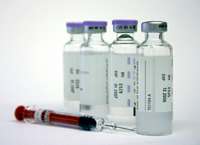
After having “solicited thoroughly for vendors,” the Nevada Department of Corrections announced that no pharmaceutical company has offered to sell the state drugs for use in executions. James Dzurenda, director of the Nevada Department of Corrections issued a statement on October 7 saying that the Department had sent 247 requests for proposals to pharmaceutical suppliers on September 2 and, in response, had received no bids to supply the state with lethal injection drugs. In August, Dzurenda informed the state Board of Prison Commissioners that one of the two drugs the state used in executions — midazolam and hydromorphone — had expired and that Pfizer, Inc., which produces both of the drugs, refused to provide the state with new supplies. Pfizer announced restrictions on the distribution of its medicines in May in an effort to prevent states from using them in executions. At the time, the company said, “Pfizer makes its products to enhance and save the lives of the patients we serve. Consistent with these values, Pfizer strongly objects to the use of its products as lethal injections for capital punishment.” Having failed to identify a drug supplier, Dzurenda said the Department “will work closely with the attorney general, the governor and the Legislature to examine our options and decide the best course of action moving forward.” The state legislature would have to approve any change to an alternative method of execution. The state’s $858,000 new execution chamber is expected to be completed by November 1, but no executions are imminent, and none could be carried out without a supply of drugs. Nevada’s last execution was in April 2006. Officials said the space will be used for storage and attorney-client meetings if no executions are scheduled.
(S. Chereb, “Nevada receives no bids from companies to supply lethal-injection drugs,” Las Vegas Review-Journal, October 7, 2016.) See Lethal Injection.


